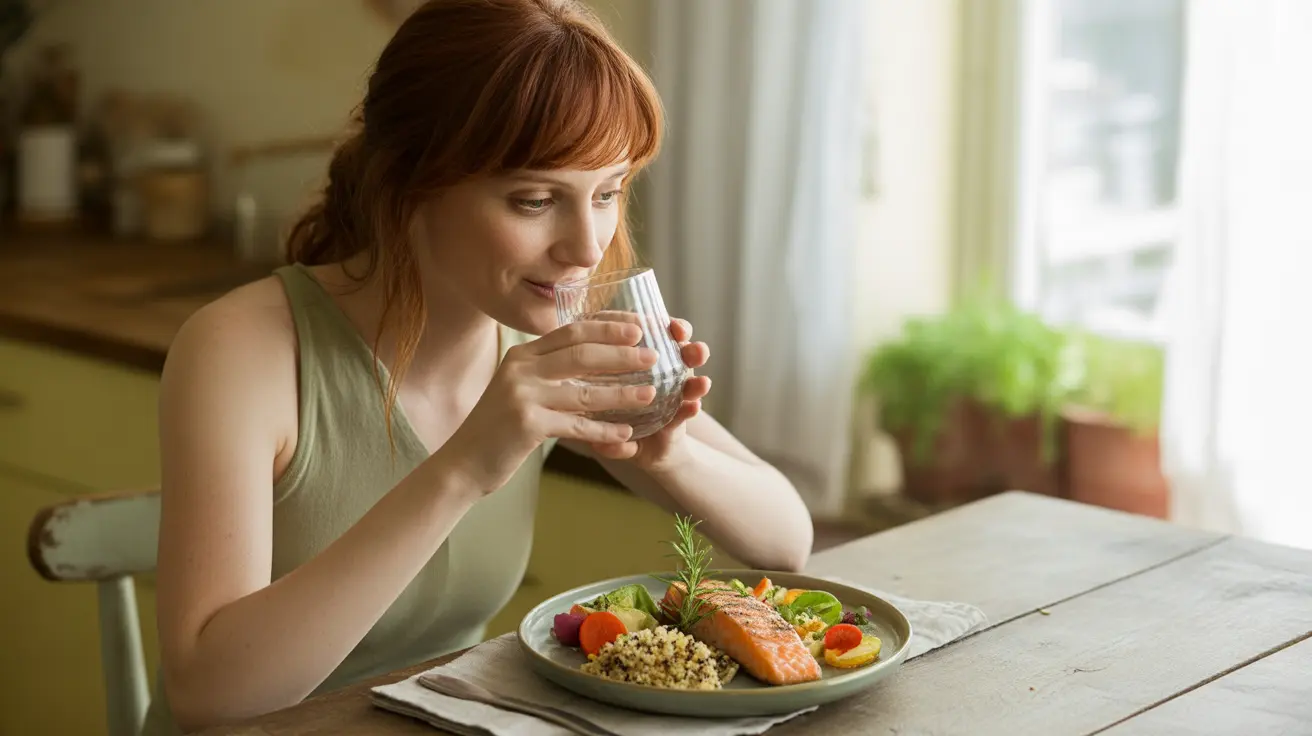Many people wonder about the impact of drinking water while eating their meals. It's a common concern that spans different cultures and dietary practices, with some believing it could interfere with proper digestion. Understanding the relationship between water consumption and mealtime is crucial for maintaining optimal digestive health and making informed choices about our eating habits.
In this comprehensive guide, we'll explore the scientific evidence behind drinking water during meals, its effects on digestion, and how to optimize your water intake for better health outcomes.
The Science Behind Water and Digestion
Contrary to popular myths, drinking water during meals doesn't significantly impair digestion. The digestive system is well-equipped to handle both food and liquids simultaneously. Your stomach naturally produces digestive juices and enzymes in response to food intake, maintaining an optimal environment for breaking down nutrients regardless of reasonable water consumption.
The presence of water actually aids in breaking down food particles and helps move them through the digestive tract more efficiently. This process facilitates better nutrient absorption and promotes smoother digestion.
Effects on Appetite and Satiety
Drinking water with meals can have several beneficial effects on appetite control and eating habits:
- Helps create a feeling of fullness
- Slows down eating pace, allowing better portion control
- Assists in proper food moistening for easier swallowing
- May reduce overall calorie intake during meals
Optimal Timing for Water Consumption
While drinking water during meals is generally safe, some people may benefit from specific timing strategies:
Before Meals
Drinking water 30 minutes before eating can:
- Prime the digestive system
- Create initial satiety signals
- Help prevent overeating
During Meals
Moderate water consumption while eating is beneficial for most people. Listen to your body's signals and drink when thirsty, taking small sips rather than large quantities at once.
After Meals
Waiting 30-45 minutes after eating before drinking larger quantities of water may help some people avoid potential digestive discomfort.
Special Considerations and Exceptions
While drinking water during meals is generally safe, certain individuals may need to modify their water consumption habits:
- People with specific digestive conditions
- Those recovering from certain gastrointestinal surgeries
- Individuals with diagnosed delayed gastric emptying
Frequently Asked Questions
Is it bad to drink water while eating and does it affect digestion?
No, drinking water while eating is not harmful for most people. Scientific evidence shows that water consumption during meals can actually aid digestion by helping break down food and facilitate its movement through the digestive tract.
How does drinking water during meals impact appetite and weight management?
Water consumption during meals can help with weight management by promoting feelings of fullness, slowing down eating pace, and potentially reducing overall calorie intake. It's a natural way to support portion control and mindful eating.
Can drinking water with food cause bloating or digestive discomfort?
While most people won't experience issues, some individuals might feel temporary bloating if they drink large quantities of water very quickly during meals. Sipping water slowly and moderately can help prevent this discomfort.
Does water dilute stomach acid or digestive enzymes when consumed during a meal?
No, water doesn't significantly dilute stomach acid or digestive enzymes. The digestive system is designed to maintain proper acid levels and enzyme concentrations regardless of reasonable water intake during meals.
When is the best time to drink water in relation to eating for optimal digestion?
While you can safely drink water before, during, and after meals, some people find benefits in drinking water 30 minutes before eating or waiting 30-45 minutes after meals. The key is to listen to your body's signals and maintain consistent hydration throughout the day.




